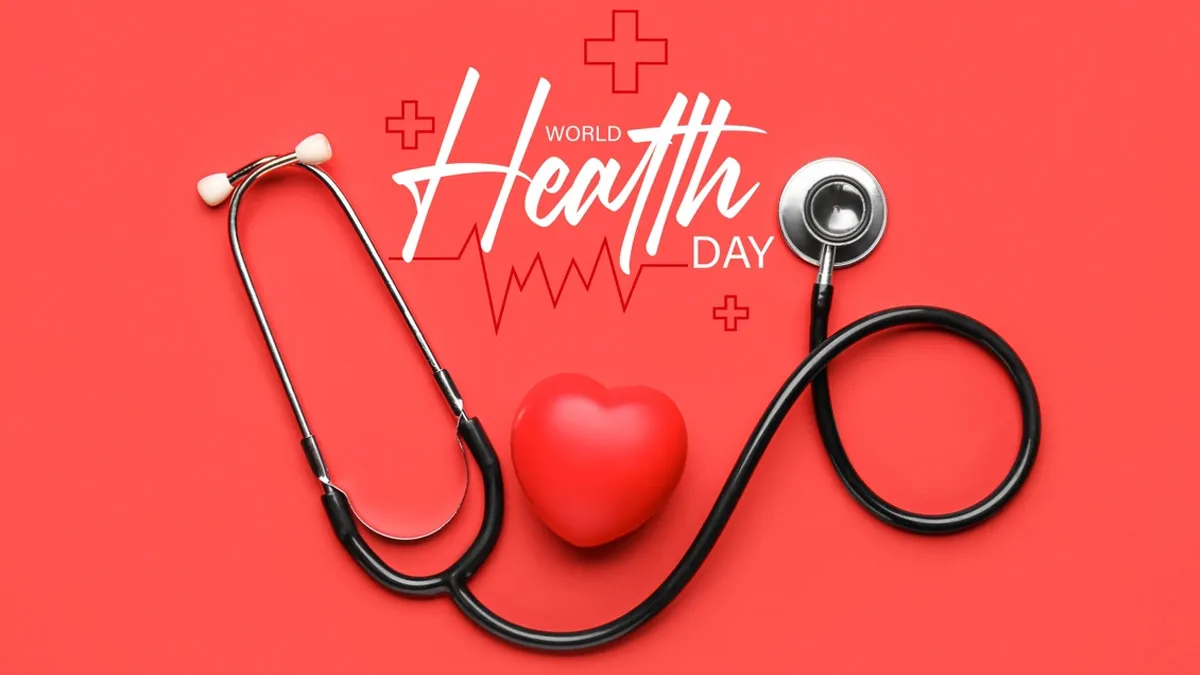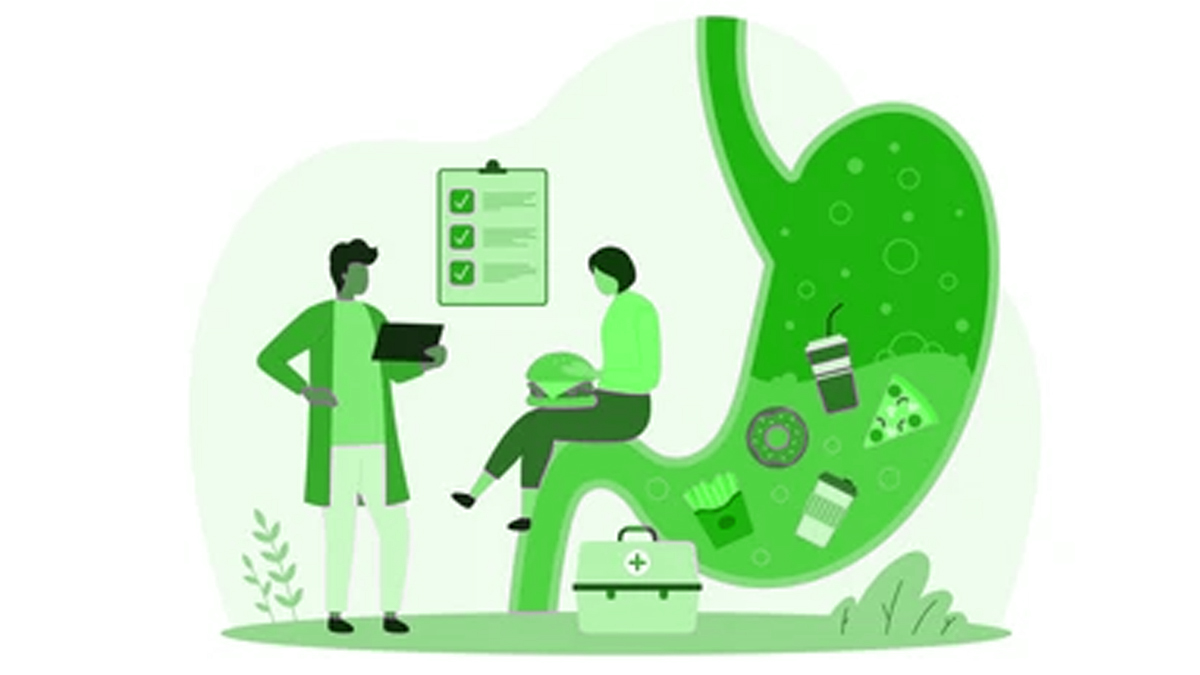
You wake up, scroll through your phone, skip breakfast, sit for hours, grab some fast food on the go, work late, binge on a show, crash in bed and repeat. It’s routine. It’s life. But somewhere between the endless notifications and that third cup of coffee, subtle signs often go unnoticed - brain fog, tired eyes, irregular sleep, a stressed gut. We brush it off, waiting for severe symptoms. But by the time they show up, the damage may already be done.
This World Health Day, it’s time to spotlight the 'silent killers' - the everyday habits and exposures we often ignore, but which slowly chip away at our health. These are not just isolated issues; they’re ticking time bombs. And the worst part? They're often hiding in plain sight. We spoke to leading health experts to decode these invisible threats and how we can shield ourselves, starting today.
The Health Risks We Ignore Until It's Too Late
1. Sedentary Lifestyle and Heart Disease

"The modern sedentary lifestyle, characterised by prolonged sitting and minimal physical activity, has become a major risk factor for heart disease, particularly among young adults," said Dr Gulshan Rohra, Consultant Cardio-thoracic Surgeon, Wockhardt Hospitals, Mumbai Central. A comprehensive review of studies published in the Annals of Internal Medicine found that even after accounting for physical activity, prolonged sitting was associated with worse health outcomes.
"Sitting for long periods may result in circulatory problems, high blood pressure, obesity, and insulin resistance, all of which lead to cardiac complications. Lack of movement decelerates metabolism, weakens heart muscles, and increases the susceptibility to diseases, such as diabetes and high cholesterol, further escalating the chances of cardiac arrest," explained Dr Rohra.
What helps?
- To mitigate these risks, experts recommend incorporating movement into daily routines by taking short breaks every hour, using standing desks, and engaging in at least 150 minutes of moderate aerobic exercise every week.
- A heart-healthy diet rich in whole grains, lean proteins, and omega-3 fatty acids can also help maintain cardiovascular health.
- Additionally, regular health check-ups, stress management through yoga or meditation, and maintaining a balanced lifestyle play a crucial role in reducing heart-related risks.
2. Digital Eye Strain and Cognitive Decline

Spending long hours in front of screens is not only tiring for the eyes but may also affect brain health over time. Digital eye strain because of prolonged screen use, leads to dry eyes, blurred vision, headaches, and difficulty focusing and will also cause dizziness. "It can also induce anxiety and stress. If you are constantly on your mobile phones or laptops or computers then your vision can get compromised. You may be required to use spectacles due to blurred vision," warned Dr Pankaj Agarwal, Head of Neurology, Gleneagles Hospital, Mumbai.
A study published in the International Journal of Mental Health and Addiction suggests that excessive use of smartphones could elevate the chances of developing cognitive, behavioural, and emotional issues in adolescents and young adults, potentially leading to an increased risk of early-onset dementia in later life.
Doomscrolling negatively affects brain health and leads to cognitive decline. Many posts circulated on social media lack authenticity and may lead to a panic-like situation. Unknowingly, many people end up believing rumours and may fret or get stressed. Excessive screen time, especially without breaks tends to reduce mental alertness, affect memory, and disturb sleep and hence, there is cognitive decline.
What helps?
- It is necessary to adhere to the 20-20-20 rule. Hence, after every 20 minutes, look at something 20 feet away for 20 seconds,
- Try to adjust screen brightness and use blue light filters as needed.
- Regularly take breaks from your screens and rest your eyes.
- Exercise and eat well to support brain function.
- If you wish to read a book, instead of doing it online, buy a copy and read it.
- Adopt habits that will reduce eye strain and keep the vision intact.
Also Read: India’s Cancer Crisis: 3 in 5 Patients Die Post-Diagnosis—Why Are Women at Higher Risk?
3. Sleep Deprivation and Mental Breakdown

Sleep deprivation undoubtedly makes it harder to think, and research suggests that prolonged sleep deprivation may increase the risk of dementia. Even one night of poor sleep can impair emotional control and cognitive function. A study published in Nature Communications found that individuals who consistently slept six hours or less per night in their 50-60s had a higher risk of developing dementia later in life compared to those who slept seven hours.
Pulling an all-nighter can lead to attention deficits, making it harder to maintain awareness and focus, and disrupting normal brain connectivity.
Slow-wave deep sleep plays a crucial role in brain clearance. During slow-wave sleep, the brain's waste removal system is activated, allowing cerebrospinal fluid to clear out cellular waste. "This process may have significant implications for neurological disease, as inadequate slow-wave sleep can lead to the accumulation of toxic waste in the brain," explained Dr Dinesh Kumar, Director, Internal Medicine, Fortis Hospital, Greater Noida.
This toxic waste includes proteins called beta-amyloids, which clump into plaques. People with Alzheimer's often have poor sleep, and one of the theories is that their circadian rhythm is delayed, similar to teenagers, meaning it's pushed later. We call this a delayed circadian rhythm.
What helps?
- Treat sleep like an appointment. Wind down with calming rituals.
- Keep your sleep environment dark, cool, and clutter-free.
- Avoid caffeine after 4 PM and ditch the news scroll before bed.
4. Ultra-Processed Foods and Gut Health Crisis

The consumption of ultra-processed foods has become a staple in many modern diets. "These foods undergo significant processing, along with the addition of certain artificial food ingredients like preservatives, food colours, sugars and oils. Processing makes these foods nutrient-deficient. Furthermore, these foods often lack sufficient dietary fibre, essential for optimal digestive health," said Asmita Jotshi, Executive Nutritionist, SB Road and Kalyani Nagar.
Impact of Ultra-Processed Foods on Gut Health
The gut hosts trillions of microbes, known as the gut microbiome, essential for digestion and immunity. However, frequent consumption of ultra-processed foods, high in sugar, fat, and low in fibre can disrupt this balance, a condition called gut dysbiosis. "These foods reduce beneficial metabolites like short-chain fatty acids and promote inflammatory microbes, increasing the risk of systemic inflammation, oxidative stress, and chronic diseases," explained Jotshi.
Their low fibre content also hampers bowel regularity and starves gut bacteria, leading to constipation. Moreover, processed foods may contribute to a 'leaky gut,' where the gut lining becomes more permeable, allowing toxins and bacteria to enter the bloodstream. The gut-brain connection means such imbalances can also affect mood and cognition.
Link to Obesity and Cancer
Gut dysbiosis can trigger inflammation, a key factor in obesity and disrupt hunger and satiety signals, leading to overeating. "Since ultra-processed foods are calorie-dense and easy to consume in large amounts, they increase obesity risk. Persistent inflammation can also damage DNA, promote tumour growth, and suppress immune function, making the body more vulnerable to abnormal cell growth," added Jotshi.
What helps?
- Crowd your plate with fiber-rich whole foods; fruits, veggies, whole grains.
- Add probiotics like yoghurt, kimchi, or kefir.
- Drink enough water to maintain a healthy digestive system.
- A healthy gut equals better digestion, mood, immunity and even clearer skin.
Also Read: Stress Bragging: Is It Taking a Toll On Your Mental Health? Find Out Here
5. Chronic Stress and Autoimmune Disorders

The stress response in the human body, an ancient “fight or flight” mechanism, is designed for brief periods of increased attention. When confronted with acute stressors, such as financial difficulties, the death of a loved one, or divorce, the body releases hormones, including cortisol and adrenaline. "These increase blood pressure, heart rate, and blood sugar levels, preparing us to respond immediately. However, when stress is a virtual constant, this short-term survival mechanism becomes a chronic threat, quietly undermining our health," shared Dr Jayanti Khura, Consultant - Internal Medicine, Manipal Hospital, Bhubaneswar.
"Chronic stress, the ongoing barrage of daily pressures, is much more than moments of agitation that come and go. It creates preconditions for a colourful bouquet of health disorders, from anxiety to depression, chronic headache to digestive disorders, insomnia to hypertension and hyperglycemia," added Dr Khura.
Research has increasingly connected chronic stress with the development and worsening of autoimmune disorders. Conditions like rheumatoid arthritis and Systemic Lupus Erythematosus (SLE) are prime examples, where the immune system mistakenly attacks healthy tissues, essentially turning the body against itself. A review in Autoimmunity Reviews discussed how physical and psychological stressors have been implicated in the onset of autoimmune diseases.
The association between chronic stress and autoimmune pathology highlights the significance of psychological health on physical health. Hence, managing stress on a proactive level is key to protecting health.
What helps?
- Learn to pause
- Journal
- Breathe deeply
- Move your body
- Call a friend. Take real breaks, not just phone scrolls
- Practising happiness and putting techniques in place to reduce stress is not a luxury; it’s an essential investment in long-term health and longevity.
5. Air Pollution and Silent Lung Damage

Delhi-NCR and other metros face dangerously high PM2.5 levels. But the damage doesn’t always show up as coughs or asthma. Dr Aabid Amin Bhat, MBBS, MD (internal medicine), Medical Director, Ujala Cygnus Sanjiv Bansal Hospital, Karnal, warns, "Long-term exposure silently harms lung tissues, accelerates ageing, and increases the risk of COPD, heart disease, and even dementia."
Continuous exposure to pollutants weakens immune defences, making it harder for the body to fight infections. There’s also mounting evidence linking air pollution to systemic inflammation and a higher risk of metabolic conditions like diabetes.
What helps?
- Use air purifiers indoors.
- Wear N95 masks on high AQI days.
- Add indoor plants, avoid burning incense or candles excessively, and stay indoors during peak pollution hours.
7. Alcohol as a Lifestyle Habit

Social drinking often escapes scrutiny, especially in urban circles. But even moderate, regular alcohol intake can strain your liver, weaken immunity, disrupt hormones, and increase cancer risk, especially breast and liver cancer.
What helps?
- Set boundaries.
- Practice mindful drinking.
- Stay hydrated and take alcohol-free days seriously. Swap that glass of wine for kombucha or infused water sometimes.
Bottomline
This World Health Day, let’s stop waiting for a health scare to wake us up. Let’s start paying attention to the quiet cues and treat them not as background noise, but as early nudges to care. The sooner we act, the longer and better we live.
[Disclaimer: This article contains information provided by an expert and is for informational purposes only. Hence, we advise you to consult your professional if you are dealing with any health issue to avoid complications.]
Read Next
The 'Mr. Bean' Guide To Solo Activities: Finding Joy In Your Own Company (Without Causing Chaos)
How we keep this article up to date:
We work with experts and keep a close eye on the latest in health and wellness. Whenever there is a new research or helpful information, we update our articles with accurate and useful advice.
Current Version